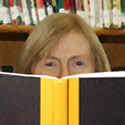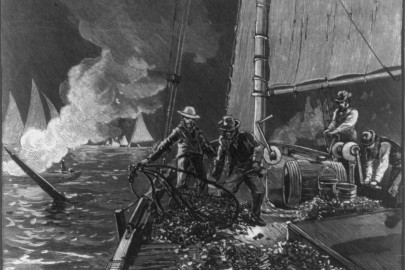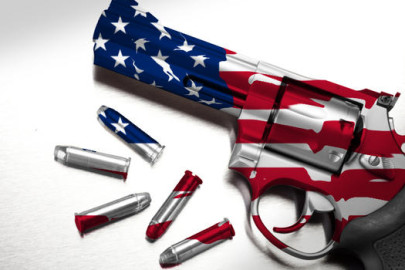News and internet coverage of the Boston bombings had all the ingredients of a TV thriller boxset. Rita is transfixed, but also disturbed…
24, Homeland, and now The Boston Bombing, TV shows that kept Americans on the edge of their seats with suspenseful plots, unexpected twists, false leads, explosions, car chases, mayhem, and death. Critics have dismissed 24 and Homeland as “right-wing terrorism pornography” feeding the fears and prejudices stirred by 9/11. Was it coincidental that the first episode of 24 aired in November 2001? I confess to thoroughly enjoying both shows, justifying it to myself as no different from enjoying a good thriller or murder mystery book. After all, it’s just pretend. That is, until it isn’t. Just as cheap-to-produce reality shows have taken over much of the TV schedule, so suddenly TV terrorism burst the bonds of fiction and became a reality show set in Boston.
It is easy to imagine the producers of The Boston Bombing ordering the scriptwriters: “We want this in real time, from incident to capture of the terrorists in five days max. Viewers have a short attention span; if we don’t wrap it up quickly they’ll change the channel.” The completed script had all the tropes of the fictional terrorism series: an iconic location (the Boston Marathon), false leads (the Saudi student), conflicting theories (it’s Al Qaeda! it’s domestic!), unexpected suspects (Chechens!), colorful minor characters (Uncle Ruslan, the hysterical, ranting mother), a shoot-out, an escaped suspect, a sudden capture (in a suburban backyard boat), and a cohort of sympathetic heroes and victims to provide hope and uplift amid the horror. Perhaps the only thing that deviated from the template was the cool, calm professionalism of the FBI and police personnel. No sweating, hyped up Jack Bauer going rogue; no beautiful, blond Carrie Mathison on the verge of a nervous breakdown. No mole on the inside to sabotage the investigation.
The revelation of the Boston suspects had strange echoes of 24’s first season. While viewers still traumatized by 9/11 expected Islamists to be behind the assassination plot, the scriptwriters pulled a more politically correct surprise on the audience. The terrorists were from Kosovo, an obscure, war-torn European region little known to Americans. We learned that Nina was the mole in the Counter Terrorist Unit when she picked up the phone at the end of one episode and spoke in Serbian. The Boston bombers turned out to be from Chechnya, an obscure, war-torn European region little known to Americans. The brothers spoke Chechen and Russian. But the twist here played out a little differently. At first the synchronized double bombing appeared to have all the hallmarks of an Al Qaeda operation. Then the photographs of the suspects were released. The brother whose face could be seen most clearly looked Caucasian (he was from the Caucasus after all), so domestic terrorism became the leading theory, another Timothy McVeigh. Then the final twist: the Chechen brothers were Muslims so it was Islamic extremism after all.
Here the plot began to echo Homeland. The fact that the elder Tsarnaev brother was described as becoming more religious in recent years provided his assumed motive and evidence of guilt. In Homeland it was Nick Brody’s conversion to Islam that convinced the audience he was planning a terrorist attack. At first the plot kept us guessing with conflicting clues. Was Brody brainwashed during his captivity or was he what he outwardly seemed, an upstanding patriotic American? The scene where he crept into his garage at night, lay out a hidden prayer mat, knelt and prayed in Arabic was the turning point tipping the audience to an assumption of guilt.
Just as I was glued to the television screen for each suspenseful episode of 24 and Homeland, so I was glued all day Friday April 19th from the moment the news alert popped up on my iPad announcing the death of one suspect in an overnight shootout. This was just the morning after the photos of the suspects were released. The plot was moving fast. It was impossible to look away. The surrealistic sight of a deserted city, law enforcement vehicles and personnel swarming like an invading army, the breathless, often wildly speculative and inaccurate reporting, the suspense over whether the younger Tsarnaev brother would be taken alive. Then the frisson of a local angle. The suspects’ uncle, it turned out, lived in my neighborhood in Maryland. I heard a helicopter circling overhead; police or media I wondered? Did the FBI think the younger brother had fled Boston to take refuge with his uncle? My phone began to ring with friends and family checking in to ask if the neighborhood was in lockdown. Calculating the hours it takes to drive from Boston to Maryland we decided there was nothing to worry about. It was the media swarming the uncle’s house for information. Uncle Ruslan delivered with a rousing speech denouncing his nephews and defending the honor of the Chechen community that became an endlessly repeated media sensation.
I confess I did examine my conscience, to use the Catholic phrase, for why this tragic, violent saga was so riveting. Was it the same prurient curiosity that makes drivers slow down at the scene of an accident to take in the full extent of the carnage? Was it that, like kids whose minds are twisted from spending too many hours playing violent video games, we can no longer distinguish the line between fantasy and reality? It is OK to find tragic, violent fictional sagas riveting. It is OK to say I enjoyed watching 24 and Homeland. But what can I say about a day spent watching The Boston Bombing when the emotions it evoked were so similar?
In an interview a few days later the grief-stricken mother of the Tsarnaev brothers said she learned on the Internet that the blood at the bombing scene was really paint. Of course she is desperate to cling to any crazy conspiracy theory that can keep her in a state of denial about her sons. But those of us who watched the latest suspenseful TV terrorism show need to remember that this time the blood was indeed real.













She doesn’t need to be in a state of denial about her sons: she was placed on the Jihadi watch list before them and the Russians flagged her up before her sons. It’s interesting that someone who claimed and received political asylum in the US because of persecution in her homeland should yet still go back to that supposedly persecuting state on a regular basis. And then, having a bench warrant issued for her arrest on charges of theft in the US, she decided to return their permanently.
No, there is a lot more to her than an hysterically grieving mother.
” The [TV] terrorists were from Kosovo, an obscure, war-torn European region little known to Americans.”
After all the ordnance we had expended to stop the Serbians, a few years before? Kosovo, indeed the whole of the former Yugoslavia, was in the news a lot in 1990s.
“The Boston bombers turned out to be from Chechnya, an obscure, war-torn European region little known to Americans.”
As in, “never heard of it before” or as in “couldn’t explain its history without a quick check of the reference books”? There was a stretch where you could drive to work without hearing someone on the radio reporting from “ChechnyA”.
I have to say that I went to bed while the siege of the boat was going on. I couldn’t quite see what my knowing the minute to minute status did for the commonwealth, or for me.
Read “could hardly drive”.
George – twitter on the day of the capture was positively awash with (mostly young) Americans exhorting the immediate destruction of czechoslovakia (which hasn’t existed for 20 years) and asking “what did we ever do to the czechs to deserve this?”
“twitter on the day of the capture was positively awash”
In a nation of 300 million, a tiny proportion of chumps can do a lot of washing, particularly in a short-form medium. As television news is to forming reasoned opinion, so Twitter is to gathering it.
Leaving aside George’s valiant and commendably patriotic attempts to insist that Americans aren’t after all the most geographically-ignorant people on the planet, Rita’s point is well made, I reckon.
I wonder if the awfulness of the Twitter armchair ‘sleuthing’ before the Tsarnaevs were officially named will prove a shark-jumping moment for that rotten medium.
I fear that structural problems will be overlooked to an even greater extent in the future, as journalists and broadcasters prefer to cover sensational but ultimately insignificant stories that appeal to peoples’ tastes for drama.
(Which is not to say that this story is insignificant.)
I also fear that people will get so swept up in the drama of events that they will not be objective enough to analyse its facts. I have yet to see it explained, for example, why the younger brother was reported to have been captured with a rifle after a firefight but is now claimed to have been unarmed.
Whether the brother was armed or not is just one of the confusing pieces of misinformation on the television coverage that day; the traditional media did not do much better that the Twitterers. In fact some were quoting from Twitter!